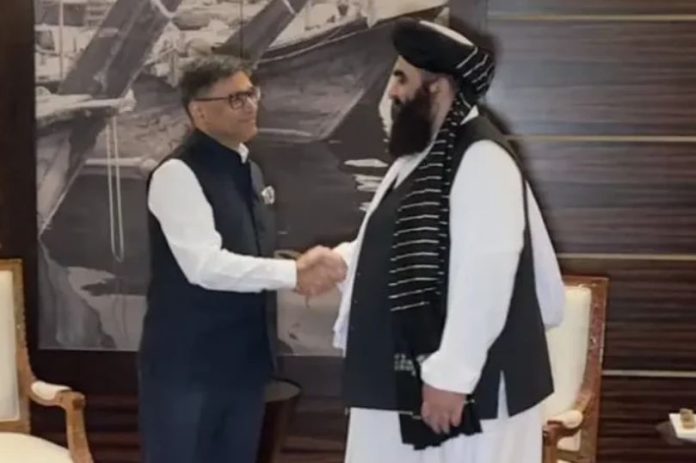Bloomberg has reported that India, in response to China’s growing influence in Afghanistan, is cautiously considering accepting a Taliban representative as the ambassador to the Afghanistan Embassy in New Delhi.
This move by India comes as part of a competitive effort to counter China’s influence in the region, and India is currently exploring various avenues to re-establish its relationship with the Taliban. Diplomatic sources have informed the media that the Indian Ministry of External Affairs is consulting and negotiating on the possibility of accepting Taliban diplomats at the Afghanistan Embassy in India.
“India’s government is expected to accept a top Taliban representative to the country soon, the latest step from New Delhi to improve ties with Kabul and counter China’s growing influence in Afghanistan,” the report stated.
According to the report, Najib Shaheen, the son of Sohail Shaheen, the Taliban’s ambassador in Qatar, has been introduced as a potential candidate for this post. According to the information, the Taliban plans to send a small delegation to New Delhi as a first step to assess the embassy’s situation. Najib Shaheen and Shaukat Dawlatzai, another prominent figure from the Taliban, have been named as the main candidates for the position of Taliban’s ambassador to India.
Before 2021, India was involved in over 500 development projects in Afghanistan. However, after the Taliban took control, India severed ties with the group and closed its embassy in Kabul. In recent months, while political interactions between the Taliban and India have begun, India has continued to reduce its humanitarian aid and has halted visas for Afghanistan’s patients and students.
Following the collapse of the previous Afghanistan government, former Ambassador Farid Mamundzai resigned due to pressures from the Taliban and direct contacts between the Indian government and the Taliban. Currently, Syed Mohammad Ibrahimkhil, the Afghanistan Consul General in Hyderabad, has taken over the responsibility of the embassy, with the approval of the Indian Ministry of External Affairs.
India’s cautious steps toward engaging with the Taliban reflect its strategic considerations in balancing regional influence, particularly in light of China’s growing presence in Afghanistan. As India navigates this delicate diplomatic situation, the future of Afghanistan-India relations and the Taliban’s representation in India remain pivotal in shaping the regional dynamics.

















